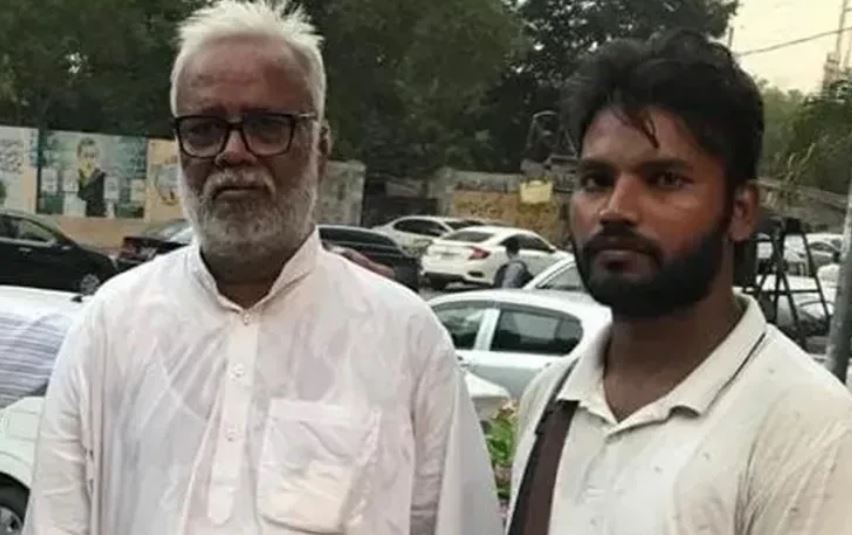
Father, son claim religious persecution in India as reason to seek asylum in Pakistan
text_fieldsMohammad Hasnain and his son Ishaq Ameer
New Delhi: Two Indian citizens, Mohammad Hasnain and his son Ishaq Ameer, were discovered in Karachi last week, allegedly having entered Pakistan illegally through the Pak-Afghan border, reported Pakistan daily Dawn.
The Dawn report quoted Karachi police as saying that the Indians are alleged to have entered Pakistan due to a fear of threats to their lives in India over their religion. Deputy Inspector General of Police (South), Asad Raza, rejected the suspicion that they were spies but affirmed that they were victims of religious bias and persecution in their home country.
The father-son duo found temporary refuge in an Edhi Shelter home, signifying their apparent intention to seek asylum in Pakistan. A statement from the Artillery Ground police station revealed that the two men staged a protest outside the Karachi Press Club, decrying atrocities faced by Muslims in India.
They expressed their willingness to face imprisonment but adamantly refused repatriation to India, fearing for their lives upon return.
The duo's plea for asylum was underscored by their protest and subsequent statements. They emphasized their desperation to avoid returning to India, asserting that they believed they would face imminent danger if deported.
The statement conveyed their grim outlook, stating, “If you want to kill us, kill us in Pakistan. At least we will get some land (for burial). In India, we won’t even get that.”
Their journey, as narrated by Hasnain, unfolded as a 14-day odyssey from their residence in New Delhi to Pakistan, with stops in the UAE and Afghanistan. The statement shed light on their arduous journey and legal issues faced in India, which reportedly compelled them to undertake this perilous venture.
Hasnain elaborated on the deteriorating conditions for Muslims in India, accusing the media of aligning with the Modi government and neglecting the plight of the minority community. He claimed that only a small section of the media highlighted the challenges faced by Muslims, emphasizing a lack of coverage of the alleged atrocities.
Addressing their decision to leave India, Hasnain pointed out socio-economic disparities, noting that many who migrated before were affluent and could afford foreign citizenship in Western countries. In contrast, he admitted lacking the financial means for such a move, prompting his unconventional journey to Pakistan.
Meanwhile, the revelation that Mohammad Hasnain and his son had travelled to Pakistan came as a shock to their neighbours in Gautampuri, New Delhi. Mohammad Azad, a tailor and a neighbour of Hasnain, learned about the incident when a shopkeeper mentioned seeing a video of them speaking with the media in Pakistan.
Hasnain, who had moved to Delhi decades ago from Jamshedpur, Jharkhand, was described by Azad as a "good man" known for running home tuitions for children at his apartment. Until the end of August, Hasnain and his son resided in a two-room apartment on the second floor of a building in Gautampuri.
Azad mentioned that they had been living there for the past eight to nine months, having previously occupied another lane in the same neighbourhood.
A few weeks before their departure, Hasnain handed over the keys of his room to Azad, informing him that he was travelling to Dubai. The news of their journey to Pakistan left the neighbours in disbelief, shedding light on the unsuspecting nature of their departure from the community they had been a part of for several months.






















